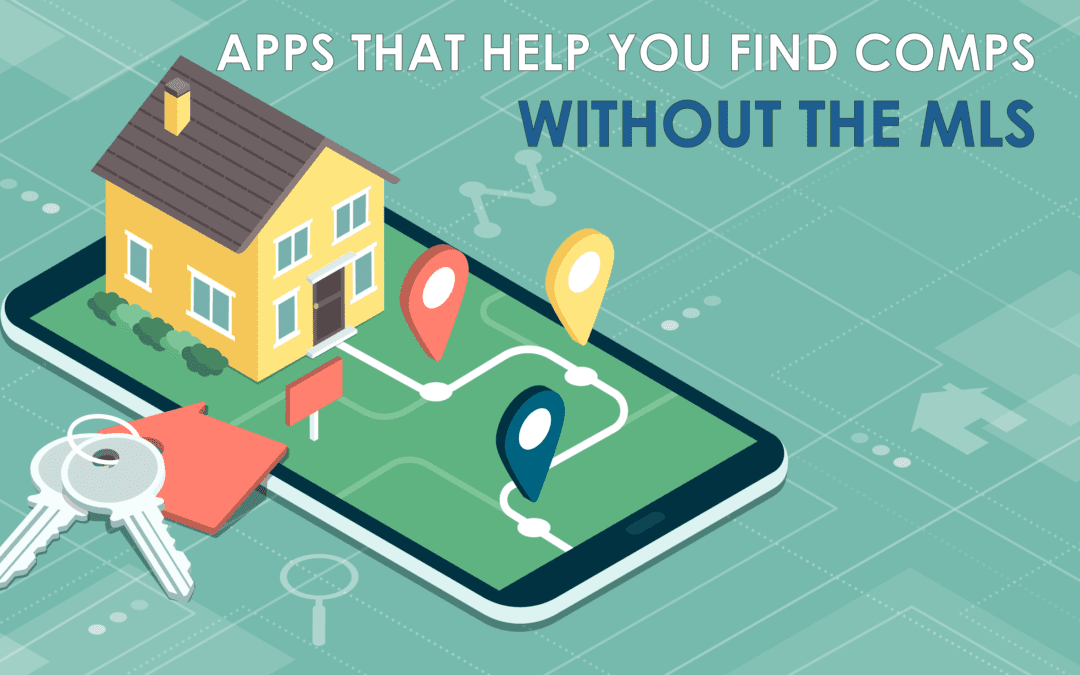When you’re on the hunt for deals and find that perfect property for your next investment, you don’t want to miss out. Instead of relying on an agent who could be showing a property, stuck in traffic, or on vacation to pull comps for you, we’re going to show you how to quickly and easily find relevant comps yourself using your smartphone or a laptop without the MLS.
Below you’ll find a comparison chart featuring the pros and cons of each of the major web and app-based MLS alternatives as well as other free resources. By utilizing these free and paid apps to comp a property, you can get the potential as-is and after repair value of a property while waiting for your agent, so that you can roughly know the numbers before you even walk through a property. If the property ends up being what you’re looking for, you no longer have to wait for someone else to search the MLS and can go directly to the seller or seller’s agent to talk about the sales price.
The Best Free Apps for Finding Property Comps
Here are the top apps you can use instead of the MLS along with their pros and cons for both IOS and Android-based devices.
| App | Pros | Cons |
|---|---|---|
| Redfin |
|
|
| Zillow |
|
|
| Home Snap |
|
|
| Realtor.com |
|
|
Other App and Web Alternatives for the MLS to Find Comps
Now that you know which apps are solid alternatives to the MLS, it’s time to fill in the gaps with additional details you may not find on the apps listed above. To find these remaining items like neighborhood stats and amenities, here are a few more free options to finish your research and move to a quicker closing.
- Google Maps – By using this you can search for nearby amenities using the search box, find busy roads, easements, and in satellite view you can even see if neighboring lots are well kept or overgrown and filled with trash.
- Census Explorer – The interactive map tool can help you find out about the neighborhood demographics, income, and education to keep from pricing your flip too high or going too low. (Note: You need Flash for this site.)
- UrbanTurf (for DC neighborhoods): This is a great resource for all of the intangibles that locals will know, but an investor may not, like upcoming development projects, amenities and nightlife, and an honest, local perspective on crime and schools districts.
- Other Neighborhood Websites: Google the neighborhood and look at the history of the area. You can see who lives there and find out more about local amenities that can help you to market the property once you’re ready to sell. Sometimes you can even find the deed restrictions and covenants on the website to help speed through the title, escrow, and the closing process.
When you see the perfect potential property for your investing goals, waiting on others can drive you crazy, or even cause you to lose the deal. That’s why it can be beneficial to learn how to generate your own comps. With modern technology like apps and your smartphone, you can gather the necessary data and get a solid estimate to comp the property without needing the MLS. Once you have a good sense of the after repair value of a deal, you can use a hard money loan calculator to figure out the cost of the project and get a quote. When you don’t have access to the MLS and time is of the essence, free apps and websites can give you enough information to estimate the value of a property to reasonable accuracy. All you have to do is know what to use, and what their strengths and weaknesses are.

